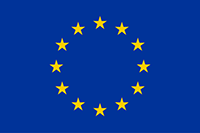The workshop on challenges and good practice in protection of places of worship – 21.04.2022
On 21 April 2022, within the framework of the PoSPeReS project, a workshop devoted to the issue of protection the places of worship to terrorist threats was held via an online platform. The meeting was organized by the University of Lodza and , KEMEA. The meeting , was attended by representatives of religious communities from various EU countries as well as representatives of various services and institutions interested in the issues of security in a broad sense. During the workshop the results of the current work carried out in the framework of (WP2) Vulnerability Assessment & Needs Analysis of Religious sites, specifically the activities undertaken in the area of Activity 2.3 (Investigation of additional case studies in Europe- identification of common and distinctive challenges, risks, gaps, and good practices) were presented and discussed. The meeting was opened by the project coordinator Mr. Marcin Podogrocki from the University of Lodz, who briefly presented the agenda of the meeting and the planned order of speeches.
Then, the representative of the Orthodox Church in Greece expressed his Easter wishes to the participants of the consortium and thanked for their commitment to improving security at religious facilities. After presenting the introductory issues, Konstantinos Apostolou from Center for Security Studies (KAMEA) – leader of WP2 pointed out the key tasks of the conducted work in the field of Vulnerability Assessment & Needs Analysis of Religious sites and described the manner of proceeding with the use of diagnostic tool based on VAT/VAC by DG HOME (which was used, during the workshops at religious sites in Ioanina, Lodz and Warsaw). Next, Dr Rafał Batkowski, key expert from the University of Łódź, referred to the conducted visits religious facilities in StatesEU countries and introduced speakers representing expert institutions, services and religious communities from: Finland (Hellenberg International), Poland (WSB University, UL § Jewish Community, SO § Wroclaw Regional Police HQ, SGSP) and Greece (KEMEA), the Netherlands (DITSS). During short presentations, results of case studies religious facilities such as Catholic, Greek Orthodox and Evangelic Churches, Synagogues and a Mosque Church were presented. The vulnerabilities in security systems and ways to address them were also demonstrated. After the break, the floor was taken by Koralia KONTOU from the European Commission (DG Home & Migration), who topresented key areas for future activity (including the creation of guides to improve awareness at places of worship, and future synergic actions as part of a broader campaign to improve security at places of worship).
The next speakers were experts who are retired officers of the Polish special forces (GROM formation), who pointed out the risk of using improvised explosive devices in religious facilities. During the speech, the consequences associated with the potential use of pyrotechnic in churches, and ways to neutralize and counteract this type of threat were presented.
The last session was a panel discussion led by Konstantinos Apostolou and Rafal Batkowski with invited representatives of faith-based organizations. The panelists were: Iman Atta – Director – Faith Matters, Leslaw Piszewski – President of the Jewish Community of Warsaw, Juhani Korte – Parish Dean, Evangelic Church, Alan Wąsowski – Archdioces of Lodz. In addition, Mr. Alessandro Calgano – COMECE and Mr. Athinagoras Soupourtzis, Archimandrite of the Greek Orthodox Church – delivered their opinions on paper. Panel members talked about their perceptions of the safety of worship and worshippers based on their personal experiences, taking into consideration distinct needs and challenges of each representative religious community. Participants had the opportunity to share experiences and ask questions. The discussion was successful and all questions were answered. The workshop ended with conclusions and comments that will be useful on the next stage of activities.


